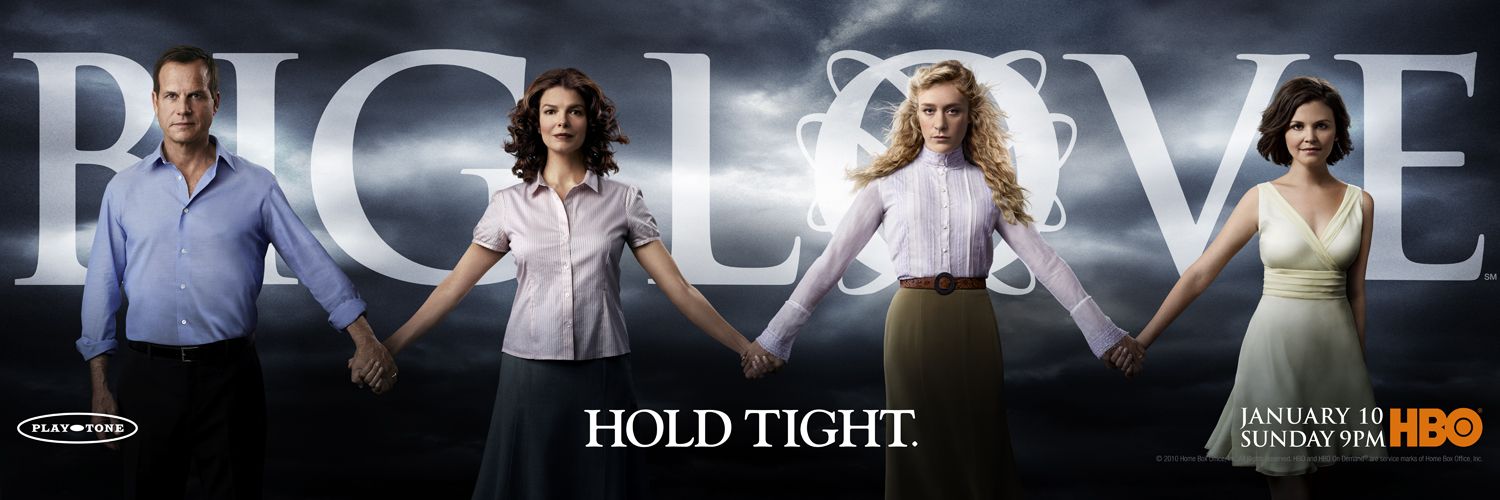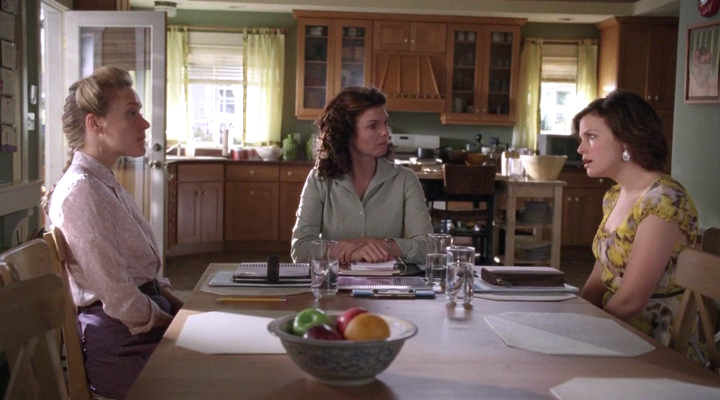Manuel is working his way through all the LGBT-themed HBO productions.

Last week (and perhaps you missed it seeing as it was on Thanksgiving Eve), we talked about Diane Lane and RuPaul’s Drag Race’s Willam Belli in Cinema Verite which chronicled the behind-the-scenes drama of the first reality TV show, PBS’s An American Family. This week we look a decidedly new American family, the Henrickson clan of Big Love.
Shows like Big Love are precisely what draws me into the HBO brand. Here is a drama about a polygamous Mormon family man, Bill Henrickson (Bill Paxton) that tackled its subject matter with surprising candor and complexity. It at once aimed to present a deconstruction of the “traditional” American family while all the while rebuffing such an ideological construct in the first place. Bill lives with his three wives: Barb (Jeanne Tripplehorn), Nicki (Chloë Sevigny) and Margene (Ginnifer Goodwin). Those three names alone should you get you interested since, even as the show billed itself around well, Bill, it was the interactions and inner lives of Bill’s three wives which drove much of the show, with Tripplehorn, Sevigny and Goodwin doing great actressing. At its best, the show was a thrilling exploration of non-normative families, particularly insightful when it came to dealing with issues of sexuality within and outside the confines of marriage.

The show’s fourth season saw Bill running for office and deciding that should he win his Senate seat, he’d come out as a polygamist. In “Under One Roof” (14 Feb 2010) the fears about what that would mean for the family come to the fore. As Margene puts it to her husband when discussing her reservations: “I’m not talking about nerves bill. I’m talking about our financial stability. Our privacy. Our family.” Later she uses similar language with her sister wives that locate polygamy in close relation to homosexuality, something the episode makes clearer by addressing the repercussions of Church-sanctioned shame on one of its minor characters.
Alby Grant (Matt Ross), Nicki’s brother and constant thorn on the Henrickson's side, is in Bill’s words, a “known sociopath.” Also, a homosexual. Far from being a villainous queer (though he skirts that line sometime), Alby is yet another example in Big Love of the way certain teachings and experiences in organized religion warp and hurt those who step outside the norms.

The show is an extended exploration of the limits of organized religion and of the possibility of freedom within certain beliefs. Alby’s lover, Dale (the gorgeous Ben Koldyke), who is involved with Bill in a plot line much too convoluted to easily summarize, finds himself facing the seething anger of Alby’s third wife Lura (the wonderful Anne Dudek), who we’re led to belief outs him to his wife, while being offered no real help from his Church’s elders.
“No temptation is so strong that you can’t resist it,” he’s told. And so, teary-eyed he rallies against how much he’s done to battle his inner demons to no avail (the scene recalls Joe Pitt’s anger at himself in Angels in America talking about Jacob wrestling the Angel). His language all but echoes Nicki’s own when she quietly tells Bill that she think she’s damaged, and who later tries to make sense of her brother’s sexuality by claiming their upbringing made them who they are. Paired with the extended conversation about “coming out publicly” and how that might have inadvertent repercussions, this is the closest the show gets to thinking about homosexuality and polygamy in the same breath.

“If you love your Church. If you want your place in heaven. If you love your family. You must find a way to stop it.”
And he does; despite being the only character who, as Alby notes, saw the good in him, Dale is found dead at the end of the episode. Death was the only way to stop it.
In essence, Dale’s plight feels like old-hat because it is. Here is, yet again, a tragic queer figure who’s unable to transcend his circumstances. It’s a mid-century character, but then, Big Love is a show steeped in a world that shows the struggles of a religion (and various factions within it) unable and/or unwilling to adapt to its time: hence, the modest dresses that we see Nicki wearing, and the clearly retrograde ideologies that the Henricksons cannot escape. But where it’d be easy to see the Mormon church and Bill as paragons of mostly outdated thoughts, Big Love was always careful to temper such judgments with pointed critiques of secularism as well as keen-eyed attempts by the Henricksons to (as is the case in this episode) marry the very rhetoric of feminism and liberation to that of the filial community of polygamy.
Oh, and if that wasn’t enough to sell you on the show and this episode in particular, know that Sevigny gets a dramatic scene where she recovers her daughter from what would be a sealing ceremony to a middle-aged man dressed liked this:



Fun Awards Fact: The real strength of Big Love always rested on its talented ensemble. Not that you’d know it from the pitiful Emmy nominations it garnered during its run (at least the Golden Globes nominated Bill Paxton multiple times and gave Sevigny a much deserved statuette in 2010). True to form, the Emmys did pay attention whenever the buzzy drama made great use of veteran actors, with Bruce Dern, Mary Kay Place, Sissy Spacek and Ellen Burstyn, all earning well-deserved Guest Acting nominations. And yes, they all lost out to well-respected actors guest-starring in NBC procedurals which as we know is the easiest way to earn an Emmy.
Next Week: I’m heading out to California for some down time, and Todd Haynes is obviously on our collective minds, so what better excuse to revisit, if ever so briefly, his gorgeous Mildred Pierce (Watch on HBO Go or on Amazon Video), another “pretty gay” if not actually gay HBO production.